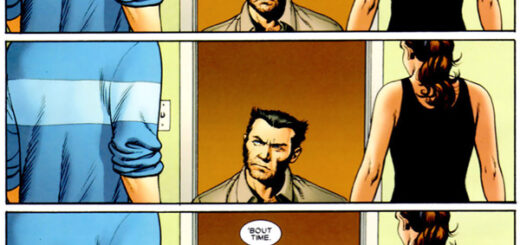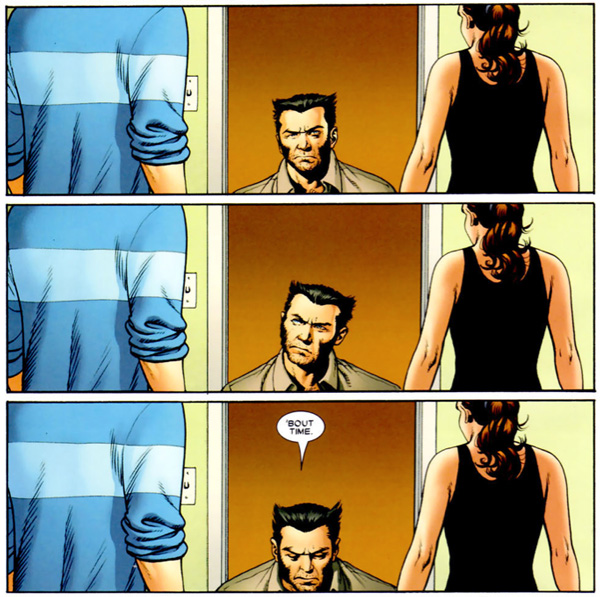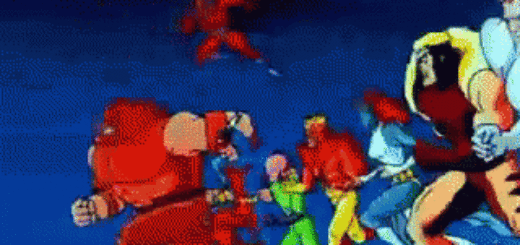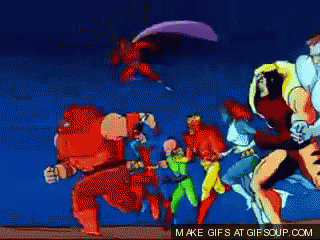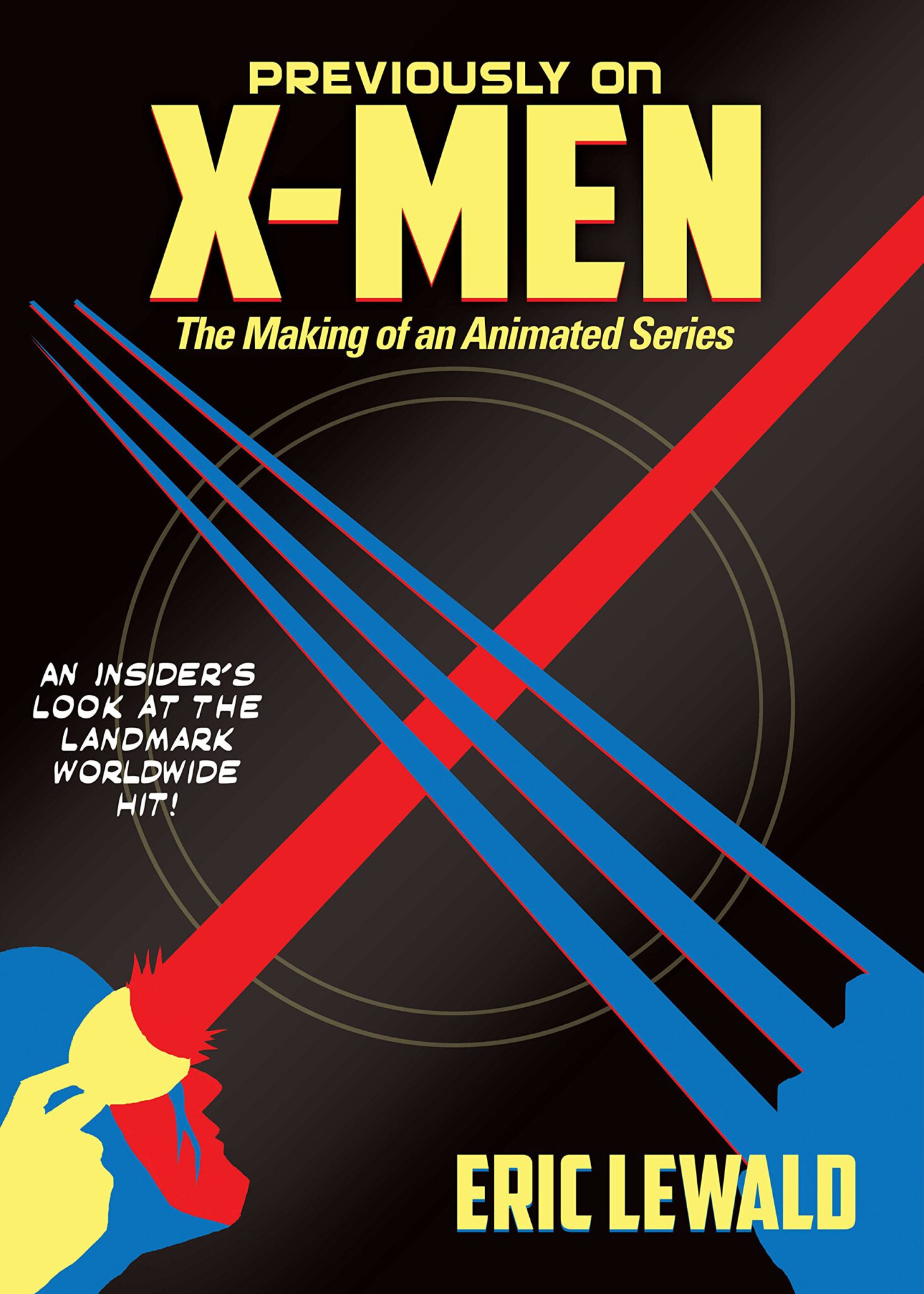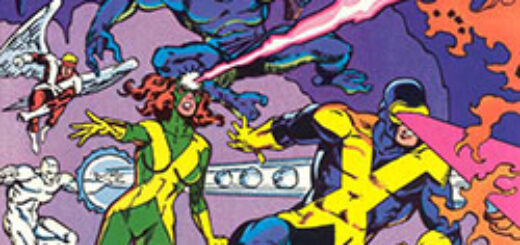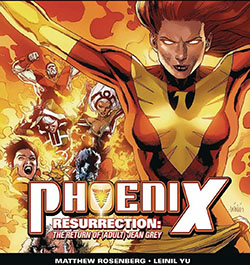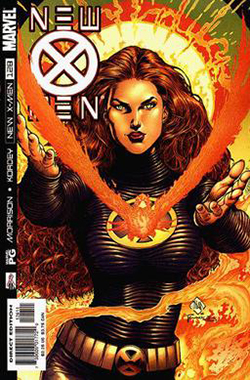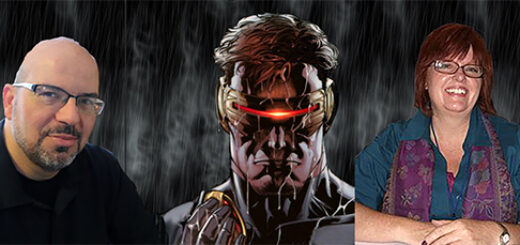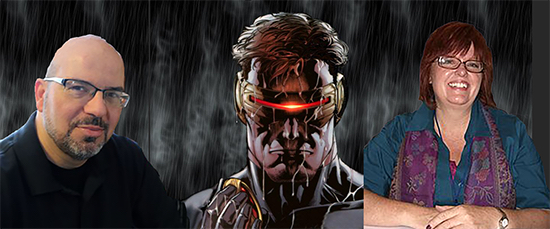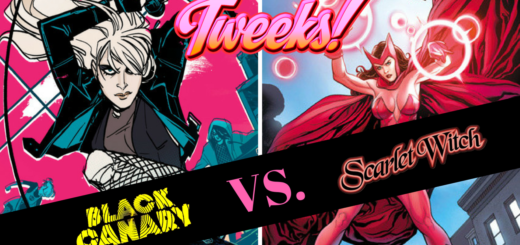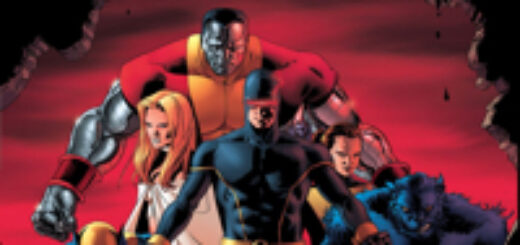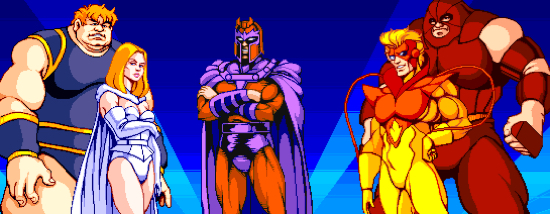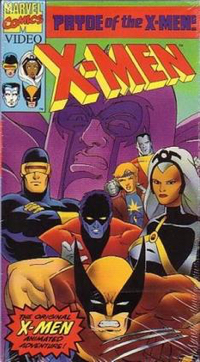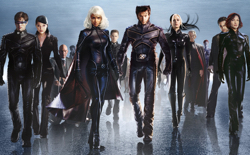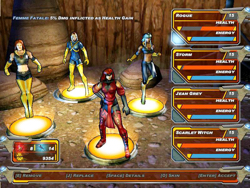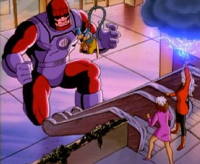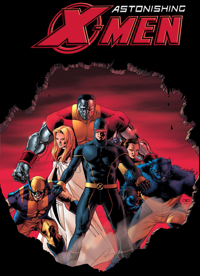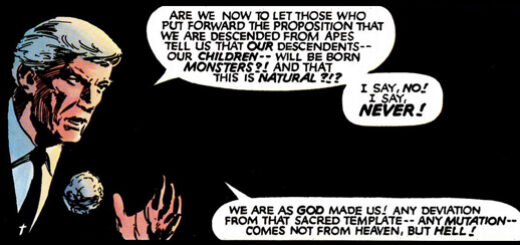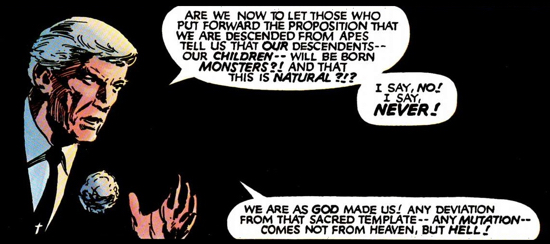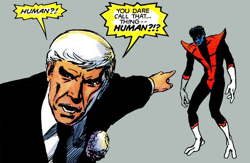The Law Is A Ass #452: Congress in the X-osphere Had Bad Deport-ment
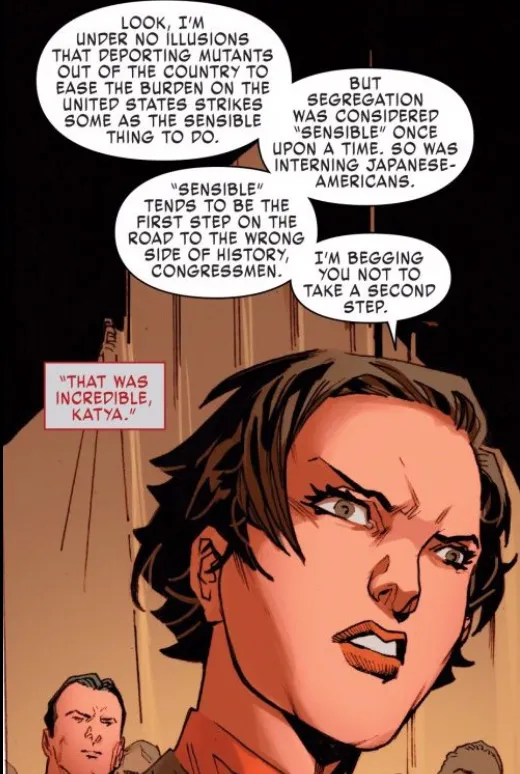
When is a person not a person?
No, not when they are ajar.
The answer to the question was at the center of X-Men Gold Vol 2, #9 , “Kitty Goes to Washington” Part 1. (By way of a quick digression, that title is derived from the classic Frank Capra movie Mr. Smith Goes to Washington, which is not a bad little movie as opposed to its remake Billy Jack Goes to Washington, which most definitely is.) (By way of another quick digression, this story was called Part 1, even though it doesn’t end in a cliffhanger and the very next issue was Part 1 of a completely different story. Proving that Marvel finds X-Men continuity as confusing as I do.)
Why did Kitty Pride, leader of the X-Men at the time of this story, go to Washington? To appear before a Congressional committee to speak against a proposed Mutant Deportation Act. What was the Mutant Deportation Act? The story didn’t say and researching on the online Marvel Database didn’t help. It’s entry on the bill said, and I quote, “The Mutant Deportation Bill was a bill voted on by Congress.” Even Captain Obvious found that answer to be a little bit on the nose. As I don’t want to spend the rest of this column speculating on what the act said, I will assume it said the United States could deport all mutants.
Is there a problem with a law that allows for the deportation of all mutants simply because they’re mutants? Did Carter have little liver pills? (No, really, did it? The pills in question weren’t shaped like livers and didn’t do anything for the liver. So did Carter have little liver pills?)
To address the problem we must first determine: what is deportation? No, it’s not one of ESPN’s foreign-language channels. According to the Supreme Court, “Deportation is the removal of an alien out of the country, simply because his presence is deemed inconsistent with the public welfare,” Fong Yue Ting v. United States, 149 U.S. 698 (1893).
If Congress were to decide that the presence of mutants in America was “inconsistent with the public welfare,” that wouldn’t be very nice. It would be singling out a class for unequal treatment simply because of how they were born; as if Congress chose to deport people based on whether their skin was the wrong color, their eyes were the wrong shape, or that they couldn’t throw a wicked slider. But let’s face facts, mutants in the Marvel Universe have had their own line of comics and cross-overs for decades. Mutants couldn’t rack up all those sales if they didn’t attract trouble, mayhem, and more property damage than an 8.7 earthquake during an F5 tornado. Yes, mutants attract trouble the way a “Wet Paint” sign attracts fingerprints. So there is a case that could be made that their “presence is inconsistent with the public welfare.”
I’m not saying that I agree that mutants should be deported simply because they’re mutants. In point of fact, I don’t think anyone should be deported because of their genetic make-up. But I also don’t have any say in the matter. I’m not in the Marvel Universe Congress. Hell, I’m not even one of its constituents. Last time I looked there weren’t any mutants, cosmic-radiated beings, or Fin Fang Fooms running around my backyard.
However, even if Congress thought it had the constitutional authority and the voter mandate to deport all mutants, it still couldn’t pass a law deporting all mutants simply because they were mutants. Sure Wolverine or Storm or Colossus could be deported. But not Kitty Pride or Cyclops or Iceman or Jean Grey. (Depending on whether Jean Grey is alive or dead now, I can never remember.) See, Kitty and the original X-Men are natural-born US citizens. You can’t deport a citizen, only an alien or a foreign national.
Congressman Baker told Kitty that it could deport all mutants, including US citizens, because mutants aren’t humans, so the protections of the Constitution didn’t apply to them. I say that argument has more bunk than an Army barracks. If you are writing a law that calls for someone to be deported that someone must be a person for a very simple reason; only people are deported.
You don’t hear of dogs being deported. Or horses. Not even murder hornets. No, you can ship sheep. Or ferry ferrets. And even pack pack mules. But you don’t deport them. Not even sentient creatures like whales or porpoises are deported. They freed Willy, they didn’t deport him.
No , if Congress wants to deport mutants, it must first agree that mutants are humans. Are people. Just people who happen to be different from the people in power. Which is why the people in power want to deport them in the first place; they’re different.
And that brings us back to our original question, when is a person not a person? The answer isn’t when they’re ajar. But the answer is definitely jarring.

